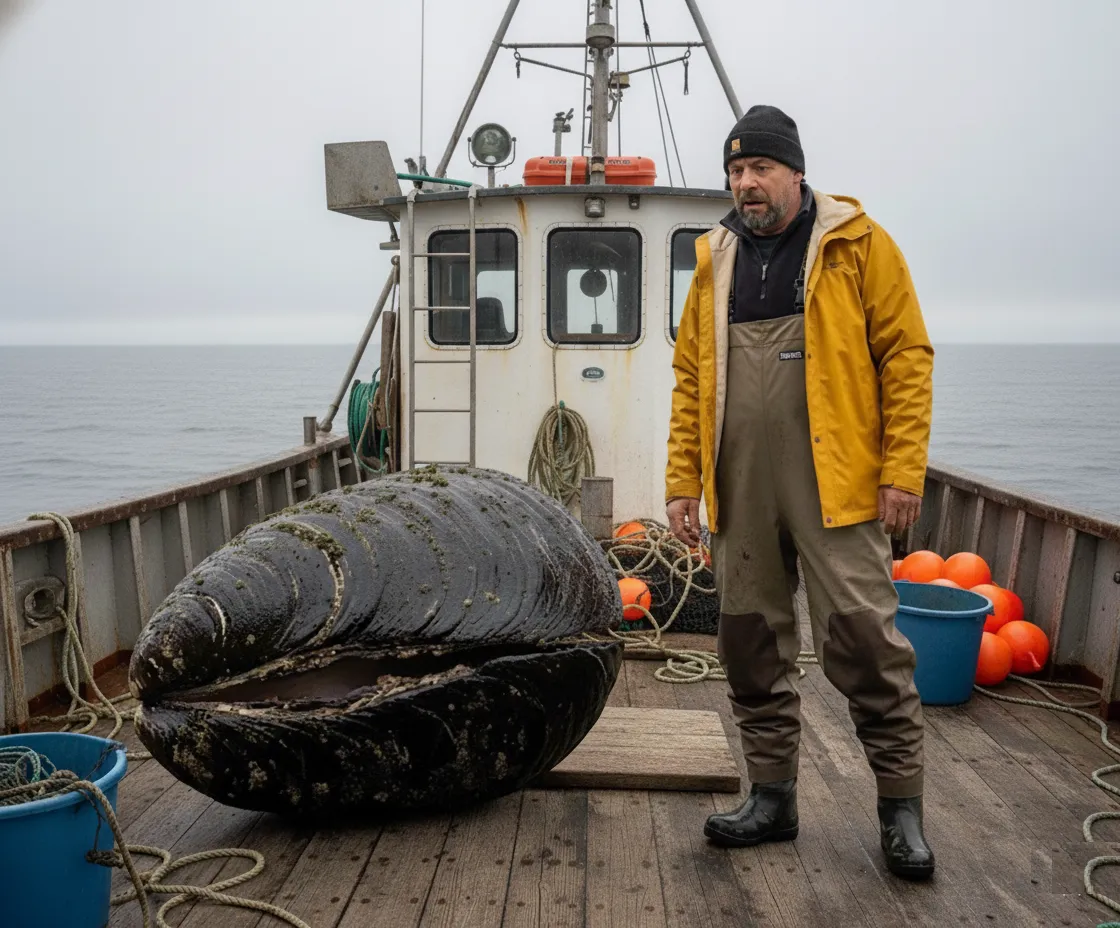Dawn settled over the water as Rowan hauled up a net heavier than anything he had lifted in years. Something massive and lumpy rested inside, covered in thick barnacles. He thought it was the biggest clam he had ever seen until a faint metallic glint peeked through the crusted surface.
The surface felt too rigid, unnervingly symmetrical. It didn’t flex the way a shell should. His pulse jumped as he wedged his knife beneath a seam and chipped away stubborn barnacles. A sharp metallic clang rang out. Unease prickled his skin. Whatever this object was, it certainly wasn’t alive.
With a final tap, a barnacle chunk snapped free, revealing a narrow line that looked uncomfortably like a hinge. Rowan froze, his breath caught. It was man-made, not a clam at all, but something sealed shut for decades, disguised by the sea. His hand hovered over the lid, suddenly hesitant to continue.
His name was Rowan Hale, a forty-three-year-old fisherman shaped by storms, solitude, and stubborn loyalty. Born in a small coastal town, he worked alone on the weathered trawler he had inherited from his grandfather—a man who always warned that the sea kept its secrets more faithfully than any graveyard ever could.

Rowan lived in a modest harbor-side cottage, where days began before sunrise and ended long after dark. His life was routine involving checking nets, repairing gear, and swallowing cold lunches between tides. The sea, despite its hardness, remained his solace, especially after losing his father young to a storm.
Rowan’s father, a deckhand on a cargo vessel, had vanished when Rowan was fourteen. No remains were recovered. Only a damaged brass compass had been mailed home by the coast guard. Rowan kept it in his trawler’s cabin, believing it carried something of his father’s spirit despite decades passing him by.

His relationship with the sea ran deep—love braided with caution. He knew its moods, its tricks, its shifting silences. He recognized when something didn’t belong. That was why the strange “clam” unsettled him. It felt placed, not grown, as if the sea hadn’t shaped it but merely tried to swallow it.
The morning had started routinely: overcast sky, steady currents, quiet gulls. Rowan had set course toward deeper waters he rarely visited, a seabed recently reshaped by fierce storms. Locals claimed storms dredged up forgotten relics, but Rowan always dismissed such warnings. Today, watching unfamiliar waves, he wondered if those stories held some truth.
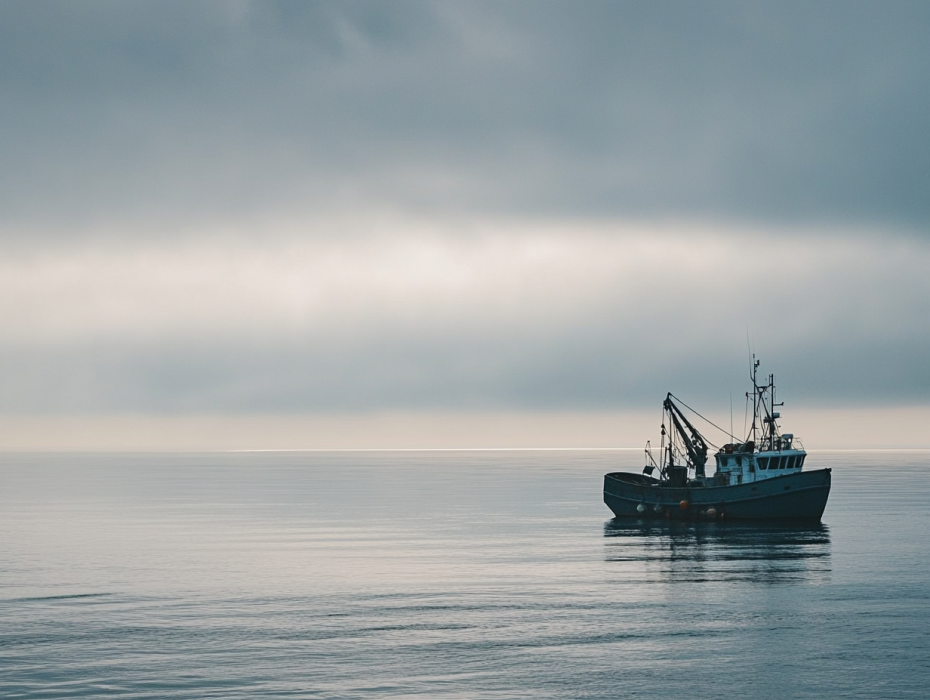
When he lowered his nets, the boat gave an unnatural lurch, as though something massive snagged below. It took long, tense minutes to maneuver the net free. Frustration simmered until he glimpsed the hulking shape wedged among the ropes. Its outline, both rounded and deliberate, sent an unexpected shiver through him.
At first, he assumed it was debris—perhaps an old beam or a rig torn free by storms. But its curved form and heavy barnacle armor made it resemble an enormous shell. Curious and cautious, he hauled it aboard with a grunt, unaware the object would challenge everything he believed till then.
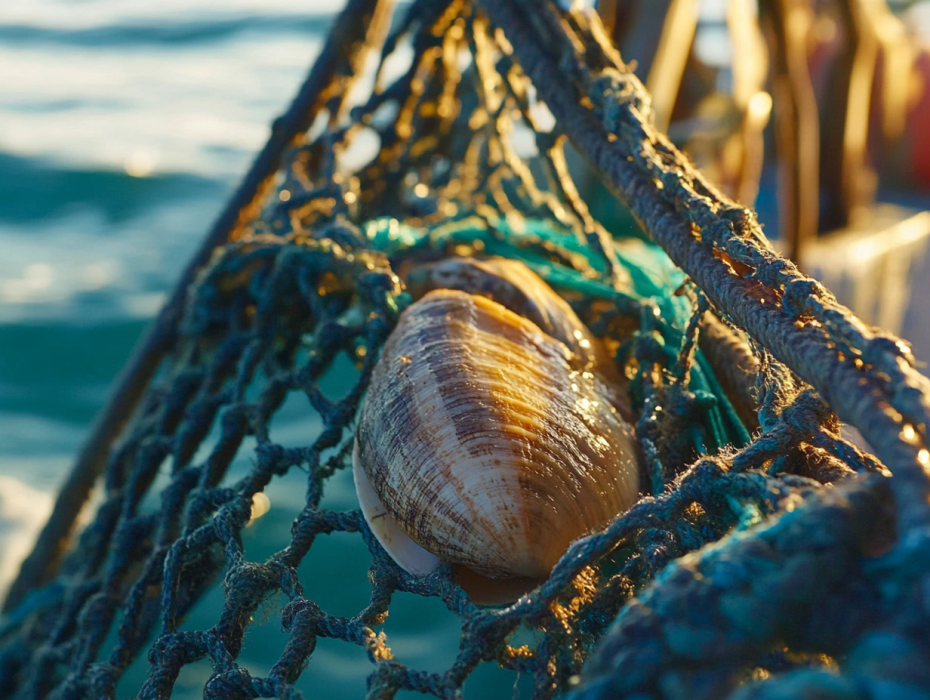
Rowan knelt over the object again and tapped the seam gently. Something shifted inside—a faint clink confirming hidden contents. His stomach tightened. He fetched a flathead tool, slid it beneath the gap, and pried with slow, steady pressure, afraid the slightest force might damage whatever had been sealed within.
A puff of stale air escaped as the lid cracked slightly. The encrusted metal edges held firm but opened enough to allow for widening. Rowan eased the gap further, careful not to scrape the interior. Sunlight struck something brass buried deep in the shadows, sending a sharp glimmer across the chamber.

For a moment, he considered closing the lid again. A lifetime of caution urged retreat, but curiosity pressed harder. He lifted it fully. Inside lay no treasure or remains. There was only a brass key, ornate and engraved, wrapped tightly in brittle oilcloth that crumbled at his touch.
Beneath the key rested a small medallion, the size of a large coin, stamped with the crest of Harrington Maritime, a once-powerful shipping company dissolved decades earlier after a mysterious wreck. The sight punched the breath from Rowan’s chest. His father had once worked on a Harrington vessel.
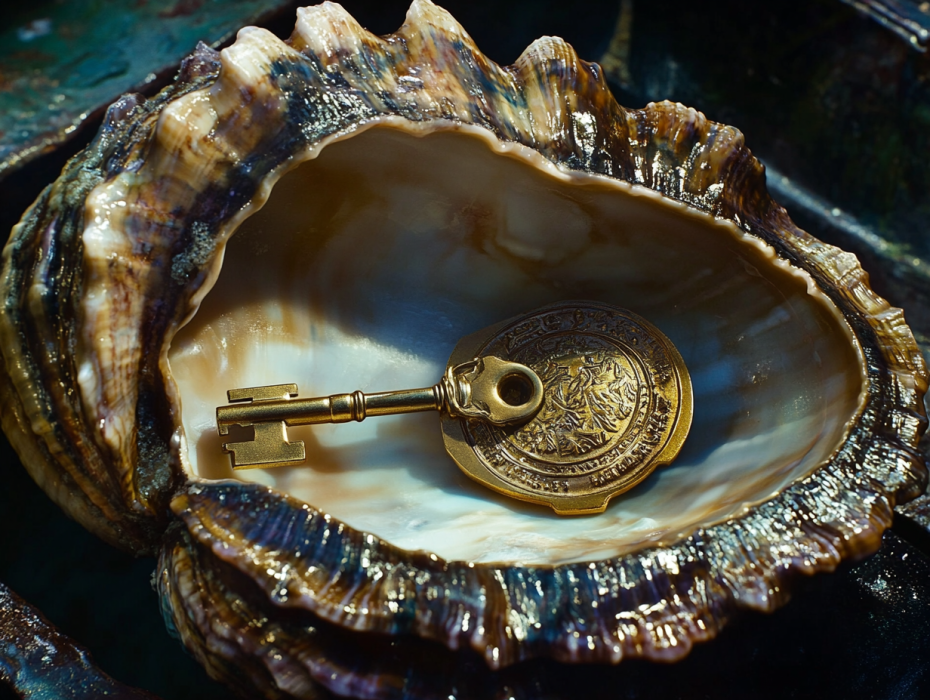
A thin strip of metal tucked beneath the cloth caught his eye, stamped with a number and an address. Rowan’s hands shook. He had never heard of the place. Did the key have something to do with it, he wondered. His breath was coming along faster now.
Rowan locked the key and medallion inside his tackle box, unease coiling in his gut. Who had sealed them underwater? Why disguise them as a clam? And what did it all have to do with the Harringtons? These questions gnawed at him as he steered back toward port.

He headed to the local maritime museum, run by elderly historian Mr. Alden, who knew every shipwreck story of the last century. Rowan hesitated before revealing the medallion, unsure how much to disclose. Still, he placed it gently on the counter, watching Alden’s lined face closely for reaction.
Alden’s eyes widened immediately. He said the medallion had belonged to the Harrington Trident, a ship lost in 1993 under suspicious circumstances. Rumors persisted for years—hidden gold, forged documents, or illicit cargo concealed beneath false manifests. Its captain, Elias Harrington, had vanished with the ship, leaving only unanswered questions behind him.

Rowan felt his pulse spike. Had his father mentioned the Trident? With so many years gone by, Rowan could hardly be sure. Now, with the medallion gleaming between them, the connection felt uncomfortably real. He wished he could remember more from his father’s stories.
Alden explained that despite the attempts to find out more about the Trident and its sinking, nobody had actually discovered much. “Whatever was in the vault of that ship,” Alden whispered, leaning closer, “hasn’t seen daylight.” His tone carried a warning, stirring a tension Rowan couldn’t easily set aside.

Rowan left unsettled. If the company had suppressed information, what was at the stamped address? And who had thrown the key and the rest into the sea disguised as a clam? Could someone connected to the captain have intended it for a specific person, or simply wanted it lost forever?
He tried researching at home but found little. Old newspaper clippings listed the Trident’s sinking as an ordinary cargo disaster, though survivor accounts contradicted one another. Some spoke of explosions; others mentioned missing crates. The inconsistencies made Rowan uneasy. It did feel like a cover-up, but for what?

That night, Rowan received a message from an unknown number: “Don’t pry into the Trident.” The words chilled him. Someone knew exactly what he’d uncovered. How had they known he would find it? He stared at the screen, pulse thudding hard.
Rowan went to the police, but they offered little help. Without evidence of a crime, they could only register the message as harassment and advise caution. Their indifference frustrated him, but it also clarified something unsettling: whatever threat surrounded the Trident, he would be facing entirely on his own.
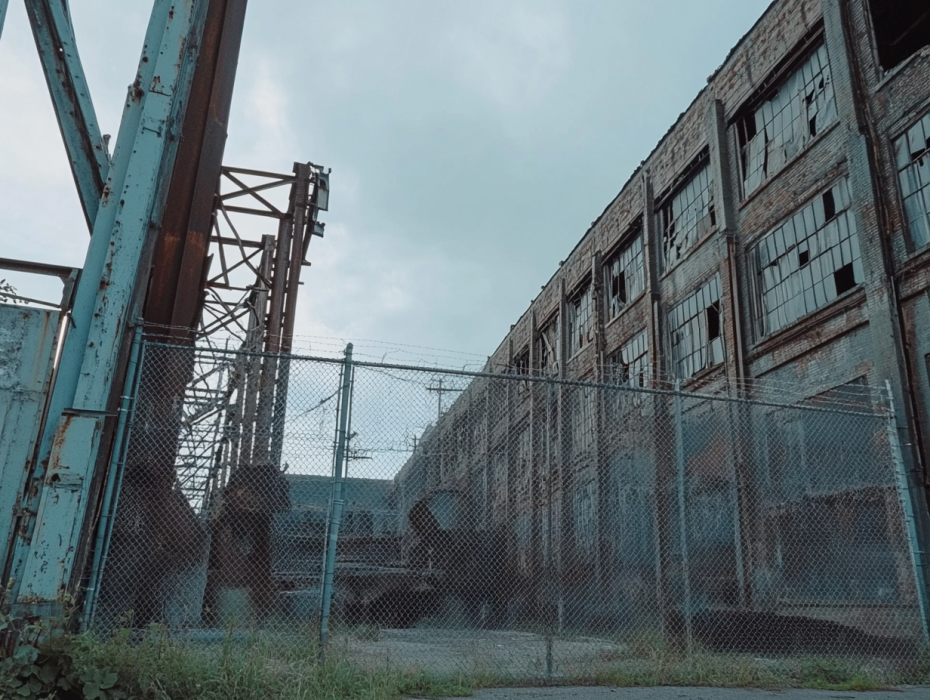
Determined to follow the lead anyway, he decided to visit the stamped address the next morning. It was a derelict warehouse near the abandoned docks—partially collapsed, fenced off, and informally marked as dangerous by anyone who valued their safety. Rowan felt drawn to it despite every sensible instinct.
When he arrived, the warehouse door was secured by a rusted chain and brittle padlock. Rowan wedged a crowbar into the links and forced a gap wide enough to squeeze through. Inside, weak sunlight slanted across dusty concrete, illuminating drifting motes that moved like slow underwater plankton.
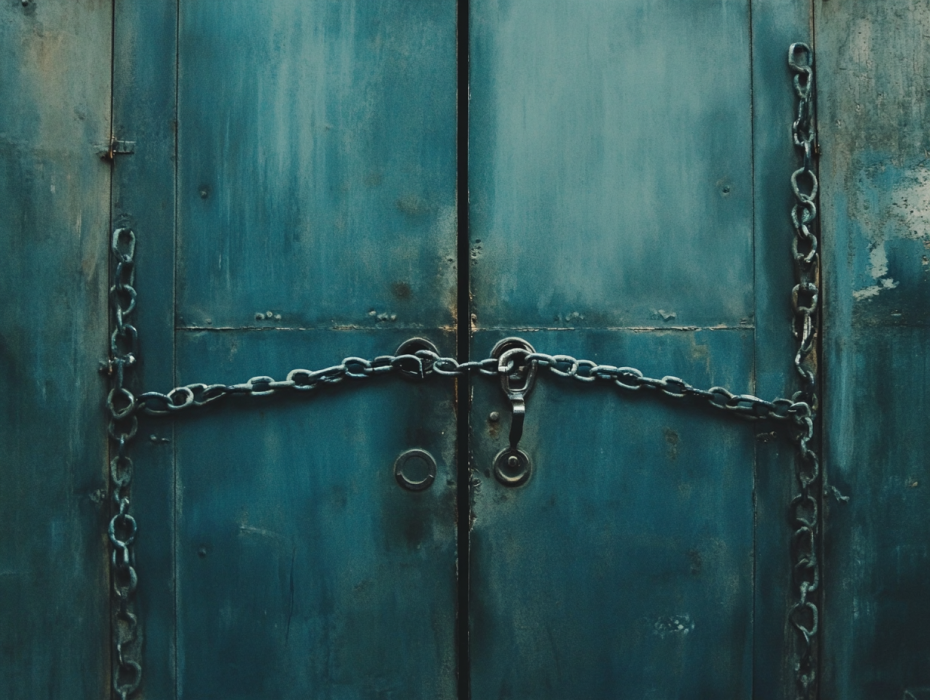
The cavernous interior appeared empty except for one boarded-up room in the far corner. The wood looked newer than the rest of the building. It had fresh nails, clean cuts, and deliberate repairs. Someone had maintained this room long after the warehouse was abandoned.
He tested the brass key in the small lock fixed to the boards. It slid in smoothly and turned with surprising ease, as though waiting for him. His breath hitched as the door creaked open, revealing a small reinforced chamber—its walls steel-lined, its purpose clearly meant for secrecy.
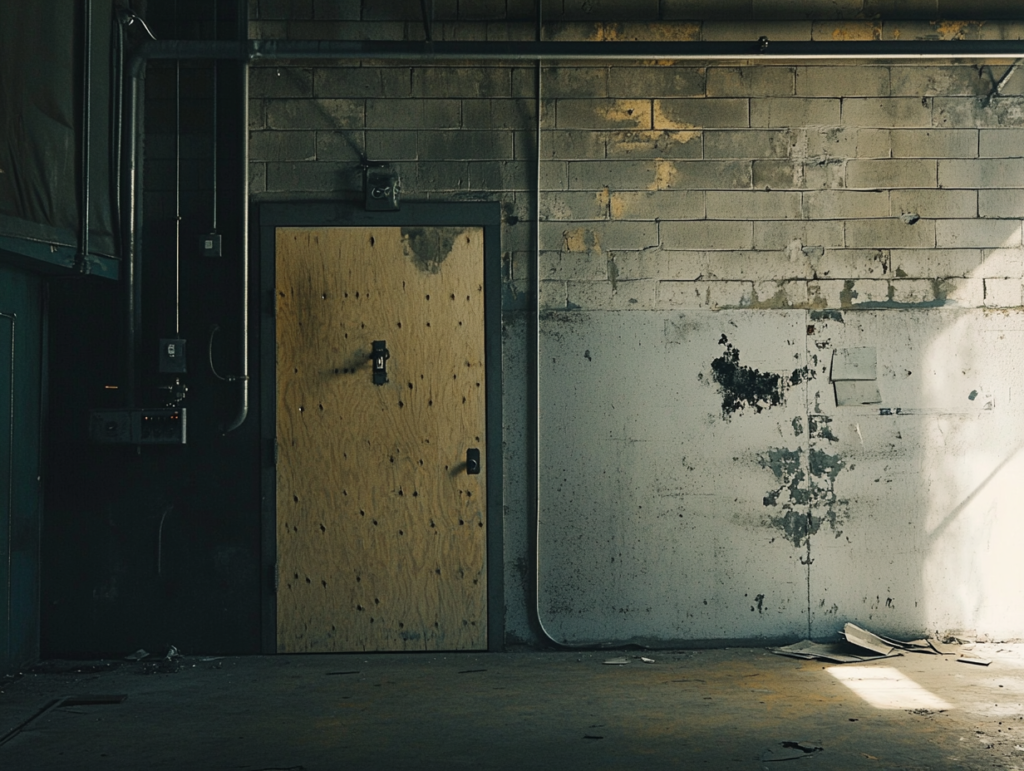
Inside stood racks of water-damaged ledgers, sealed tins, and a reinforced steel chest bolted securely to the floor. Rowan’s heartbeat thudded in his ears. This, undeniably, was a vault—hidden and untouched for decades. The air inside felt thick with stories.
Before he could step toward the chest, footsteps echoed sharply from somewhere near the warehouse entrance. Rowan froze. Someone else had entered the building. The scrape of shoes on concrete confirmed he was no longer alone. Whoever it was, they hadn’t come by accident; they were searching.

Rowan hid behind a pillar, clutching the key hard enough to hurt. Two men with flashlights entered, speaking in low, clipped voices. One muttered, “He came here. He must’ve opened it.” Rowan’s chest tightened. Someone had been following him. Why hadn’t he been more careful?
The men split up, sweeping their lights across the dark interior. Rowan slipped toward a narrow hole in the wall and squeezed through, gravel scraping his jacket. Excited shouts erupted as they discovered the open door to the vault. He didn’t look back. He just ran.

He reached his truck and sped off, heart hammering against his ribs. Whoever those men were, they had arrived too quickly, and now, he had led them to the vault. Someone understood the key’s significance and wanted to keep Rowan from uncovering the truth.
Rowan called Alden again, hoping for guidance, but the old man suddenly sounded nervous and evasive. His voice trembled as he insisted Rowan drop the matter entirely. “Some currents weren’t meant to be stirred,” Alden warned. His tone carried fear, leaving Rowan more unsettled than before.

Rowan decided to take the key and medallion somewhere safer. One place came to mind—his late grandfather’s old storm shelter, hidden deep on the outskirts of town. Few people even remembered it existed. The secrecy of the place offered comfort, a temporary shield from whoever had sent those threatening warnings.
He reached the shelter, unlocked the heavy hatch, and hurried inside. The air smelled of dust and old wood. Rowan placed the objects in a metal box and slid them beneath loose floorboards. Moments later, bright headlights swept slowly across the surrounding trees, freezing him in place.
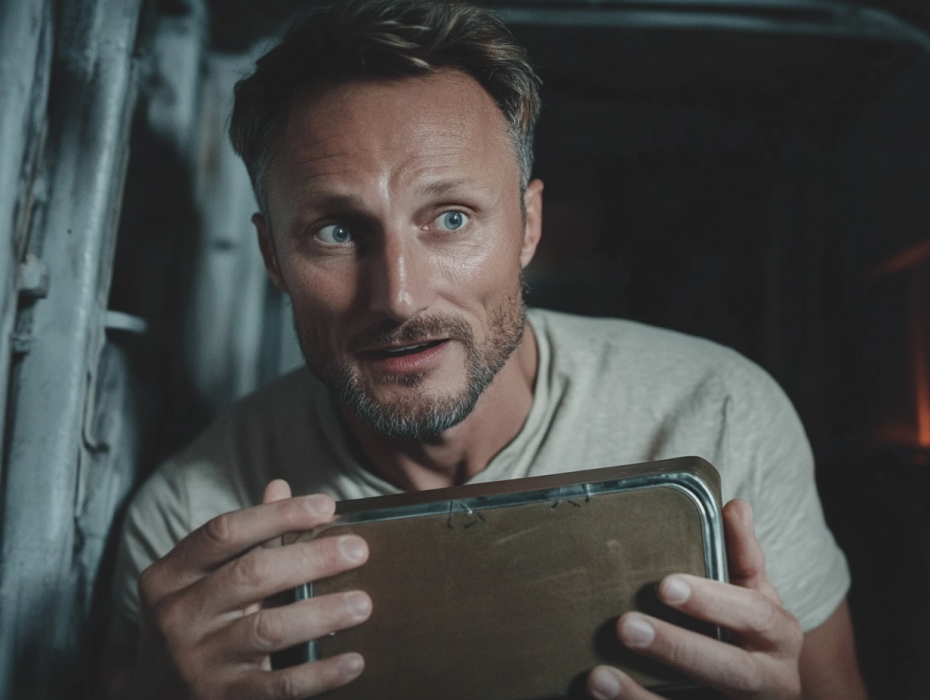
Rowan crouched low as a car idled outside, engine humming. After a tense minute, it moved on, its taillights fading into darkness. Was it just a coincidence or someone pursuing him? He couldn’t tell. Either way, the tension curled tighter around him, coiling like a rope drawn steadily taut. He realized it was better to keep the key and medallion on him.
When he returned home, he found his mailbox pried open. Inside lay a single note scrawled in sharp, impatient handwriting: “The vault isn’t yours. Walk away now.” The bluntness rattled him. The writer knew exactly where he lived and felt confident enough to threaten him openly.

Fear flickered, but anger rose stronger. His father had always spoken about doing what was right, even when it came at a cost. Rowan wasn’t about to abandon this trail. Not now. Not when the truth, whatever it was, felt closer than it had ever been in his life.
He spent hours digging through old online maritime logs, cross-referencing shipping manifests and inspection reports. Patterns emerged. Harrington Maritime’s records contained glaring discrepancies—duplicate entries, wrong tonnage numbers, and missing crates. Rowan’s suspicion deepened with every inconsistent page he uncovered.

One detail stood out. The Harrington Trident’s final voyage included several crates labeled “restricted archives,” listed without explanation. Rowan wondered what kind of archives a shipping company would risk lives to conceal. The classification felt far from ordinary, hinting at something heavier than simple bookkeeping mistakes.
One name that appeared repeatedly was Edwin Vale, the Harrington family’s long-standing lawyer. He had represented them during every investigation, handled sealed records, and actively discouraged divers from accessing wreckage sites. Rowan noted he was still alive. He might know exactly what the vault contained.

Rowan called Vale’s legal office, hoping for a shred of cooperation. Instead, the receptionist relayed Vale’s curt refusal. “Mr. Vale has nothing further to say about the Trident incident.” The tone was icy, final, and clearly practiced. Rowan hung up with more questions than before.
He wondered if the vault held wealth, scandal, or both. And why hide the key underwater, disguised as a giant clam? Unless someone wanted it lost forever or wanted the right person to find it eventually. Rowan felt more certain now that this discovery was no accident.

Determined, Rowan decided to return to the warehouse the next night—this time prepared, cautious, and ready for whoever might be watching. The truth waited in that steel-lined room, and he was done running from shadows. Whatever the vault contained, he needed to see it himself.
Rowan armed himself with a flashlight and sturdy gloves. He waited until well past midnight, ensuring nobody was tailing him. The harbor lay silent beneath a moonless sky. Shadows clung to every surface as he approached the warehouse, each step carrying him closer to answers he both wanted and feared.
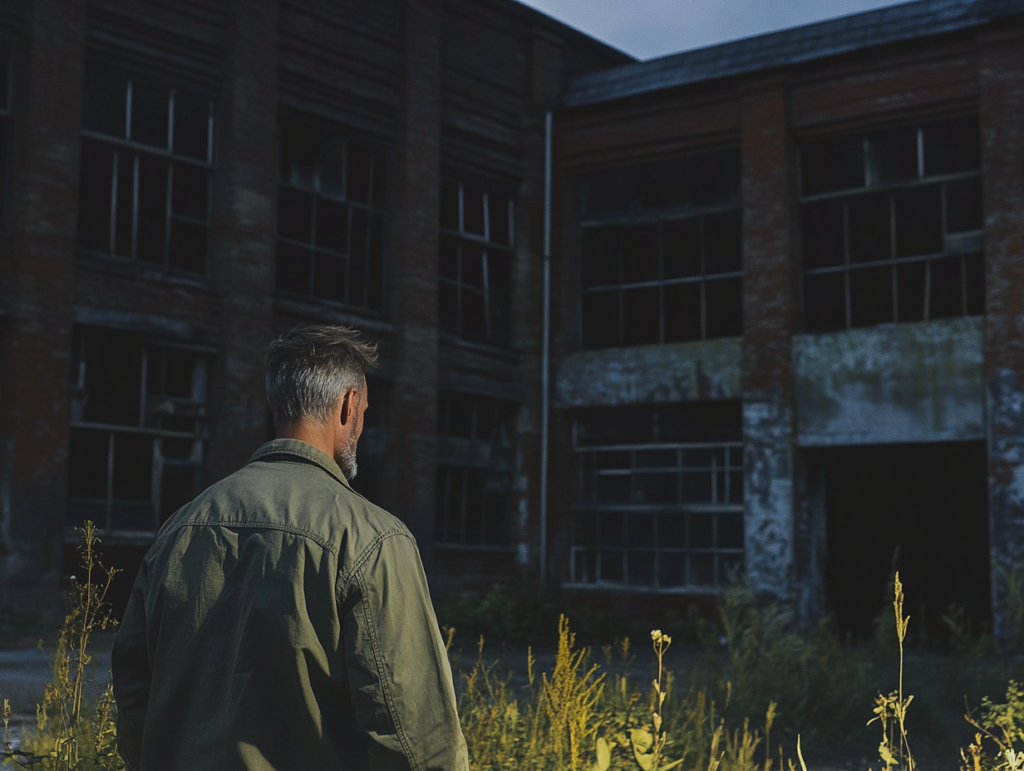
The front door was open, and there were fresh footprints around. Someone had returned after him, clearly searching. Rowan’s pulse quickened, but he pressed forward. Whatever waited inside, he needed to face it. Turning back now would only leave the truth buried for someone else.
The vault chamber looked disturbed. The steel chest remained locked, but the ledgers were scattered, pages torn and damp. Someone had rummaged desperately, seeking something specific but apparently failing to find it. The chest’s heavy lock still glinted intact, guarding whatever secrets the captain had once hidden.
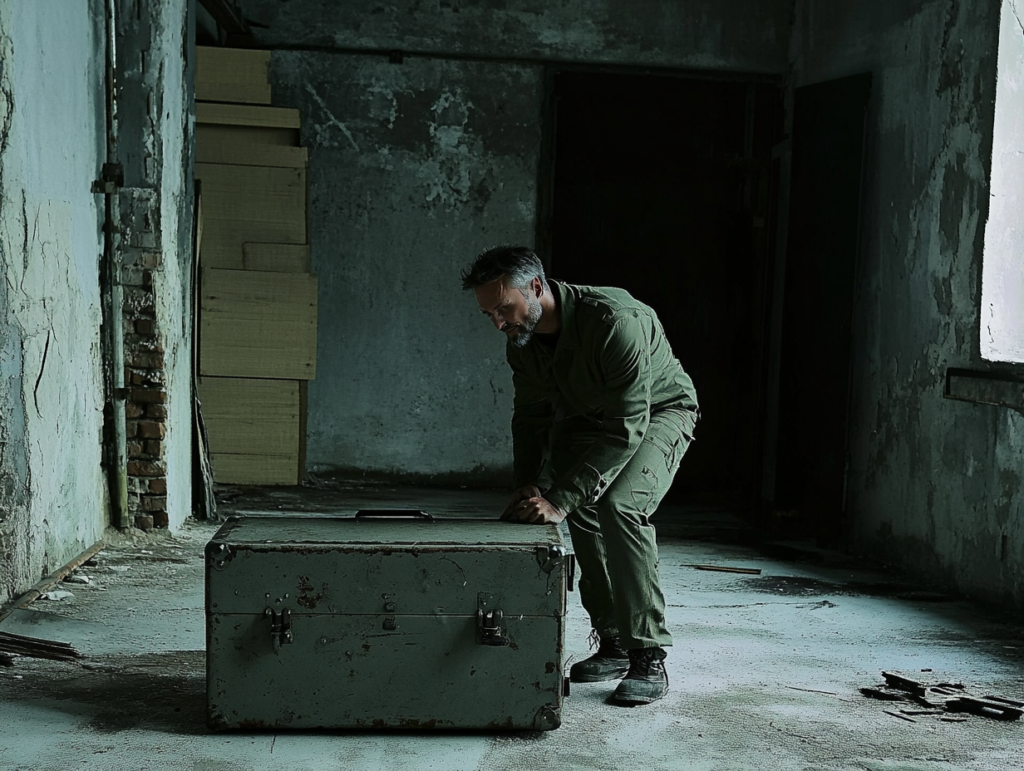
Rowan noticed a familiar circular groove on the lid of the vault. He placed the medallion into the groove, and it fit perfectly! He hesitated, recognizing that this moment marked an irreversible step. Opening the chest would cross a line, binding him to whatever truth lay concealed within its cold steel shell.
He rotated the medallion. A heavy click echoed through the chamber. The chest unlocked. Before Rowan could lift the lid, a voice behind him commanded, “Wait.” He spun around, startled. Alden stood in the doorway, face pale and drawn, eyes shadowed by something.
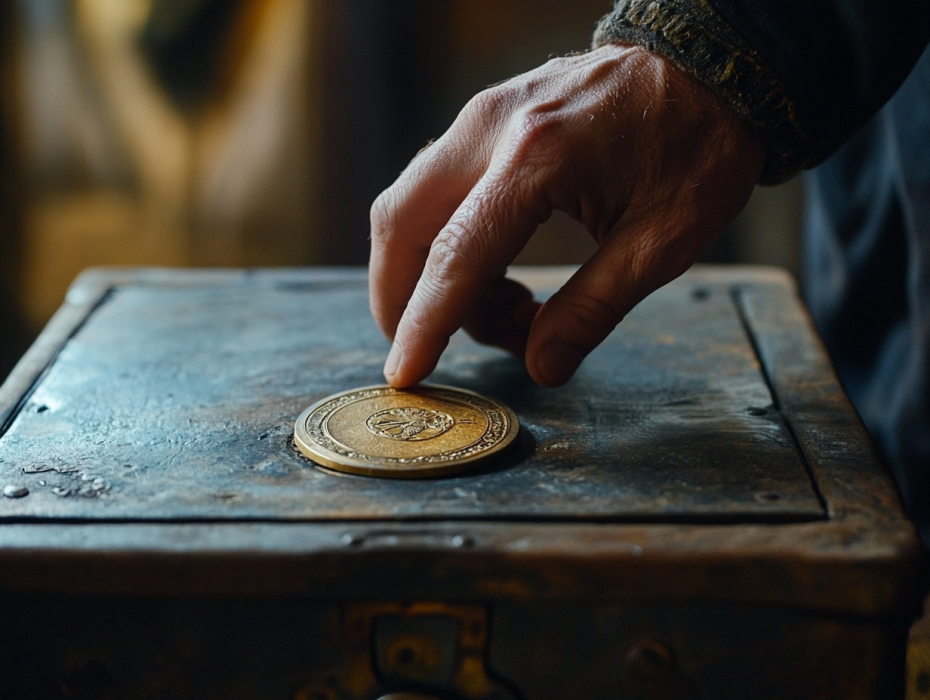
Alden stepped farther into the chamber, breathing hard. “You really don’t waste time,” he said, eyeing the open chest hungrily. “I recognized that medallion the moment you showed it to me.” His gaze sharpened. “Step away from the vault, Rowan. You don’t understand what you’re touching.”
Rowan straightened, keeping one hand on the chest. “You told me nobody knew what was in here,” he said. Alden’s smile thinned. “I said nobody had found it. Harrington owed me, and this is all that’s left. Decades of service, and they left me with nothing but rumors.”
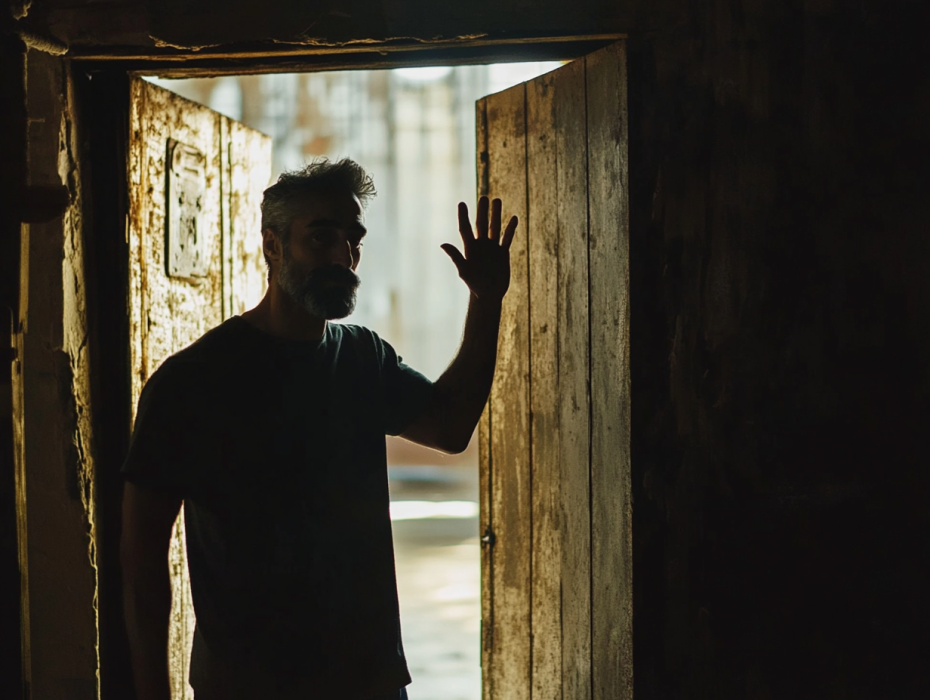
“You think there’s treasure in here,” Rowan said slowly. Alden’s eyes flashed. “Gold, bonds, something,” he snapped. “Do you really believe someone created all this safety for nothing?” He stepped closer, voice low. “We can split it. You never saw me. Or you walk away with nothing.”
Rowan shook his head. “If this proves Harrington did something wrong, it belongs with investigators, not in your pocket.” Alden’s expression hardened, the friendly historian vanishing. “You always were sentimental,” he muttered. He reached for a crowbar leaning by the wall, fingers tightening around the metal handle.

“I won’t let you ruin this,” Alden said, raising the crowbar. Rowan stepped back, knocking into a shelf. “You’re not thinking clearly,” Rowan protested. Alden swung, the blow glancing off Rowan’s shoulder and sending him sprawling. Pain shot through him as the flashlight skittered away across the floor.
Alden ignored Rowan’s groan and flipped the lid fully. Instead of gold, stacks of folders and sealed envelopes stared back at him. His face twisted with disappointment. “Just papers?” he snarled, rifling through them anyway. “Fine. If this is all there is, I’ll still make them pay me.”
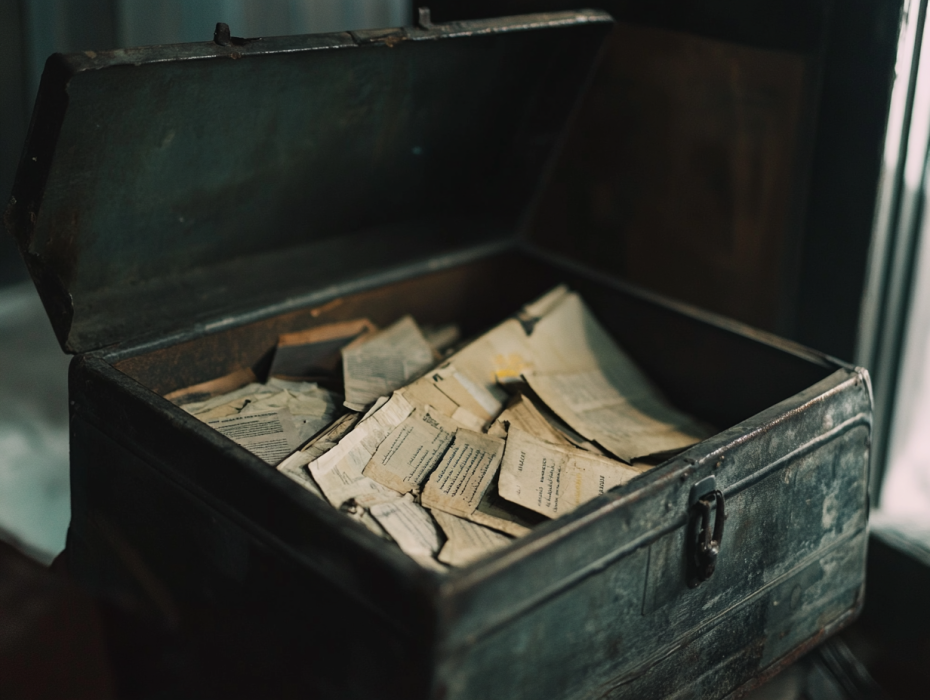
As Alden yanked out a bundle, a familiar slant of ink caught Rowan’s eye. On the top page, beneath smudged headings, he saw his surname—Hale—written in his father’s old, careful hand. Shock sliced through the pain. He lunged forward, grabbing the edge of the folder Alden held.
“Let go!” Alden shouted, jerking the bundle toward himself. They struggled, paper crinkling between them. Rowan’s weight slammed into a shelf. The rusted metal groaned and tipped, sending ledgers crashing down. One heavy volume struck Alden’s leg. He cried out, collapsing, the crowbar clattering from his grasp.
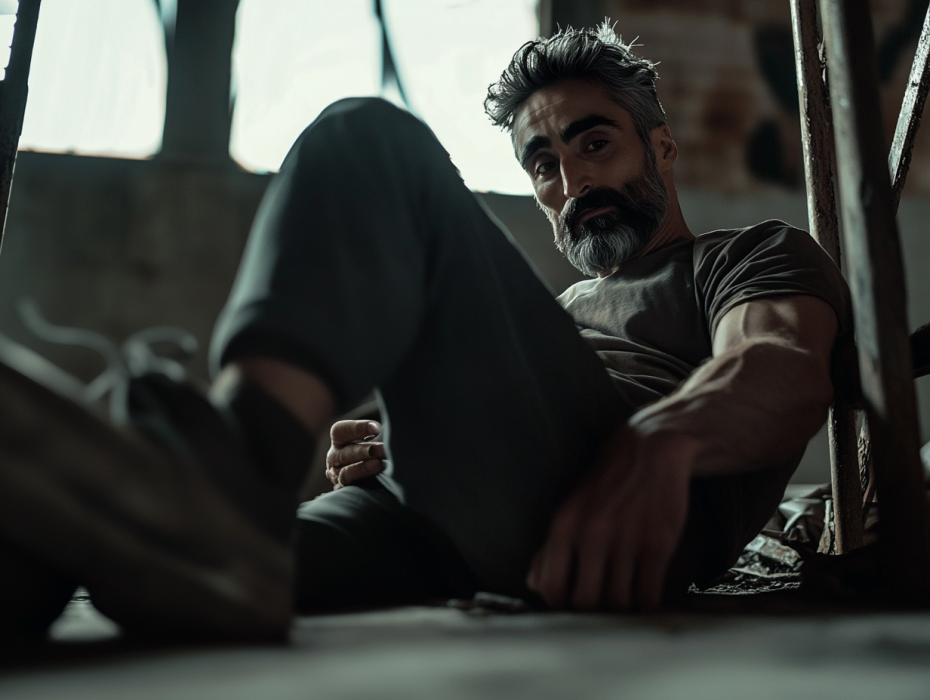
Dust billowed as the shelves settled. Alden lay pinned at the ankle, cursing, fingers clawing for the scattered pages. Rowan, shaking, snatched the folder with his father’s handwriting and the medallion, stuffing them into his jacket. “You can’t leave me here!” Alden yelled. “You have no idea what you’re doing.”
Rowan hesitated only a moment. “You were willing to kill me for this,” he said quietly. “I’m done trusting you.” He backed toward the exit hole, heart pounding, then squeezed through and ran for his truck. Behind him, Alden’s furious shouts echoed through the darkened warehouse.

Back at his cottage, Rowan locked the door and sat at the table, hands trembling. He opened the battered folder. The first page was a statement in his father’s handwriting, addressed to “any investigating authority.” It described falsified cargo records, unexplained route changes, and threats made against crew members.
Subsequent pages held copied manifests, dates, and ship names. Several belonged to Harrington Maritime. One section detailed the Harrington Trident’s final planned voyage, marked with coordinates that matched the wreck’s location. At the margin, in smaller letters, his father had written, “Duplicate files hidden separately—warehouse vault, dock district.”
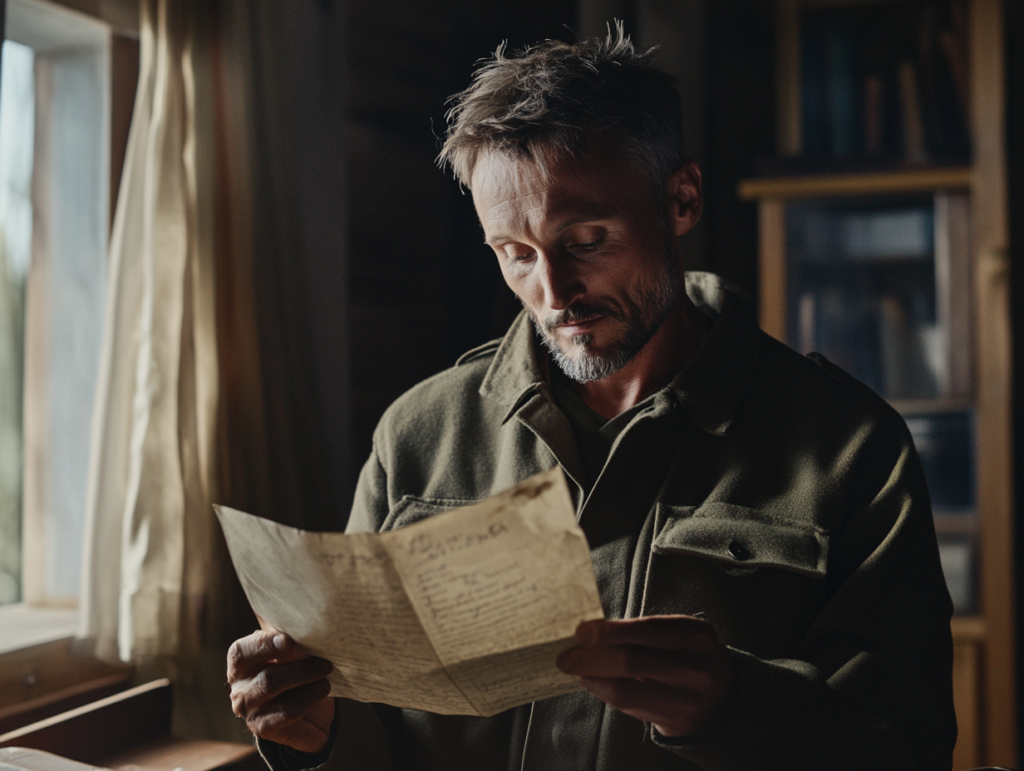
Near the back, Rowan found a half-ruined letter beginning, “Rowan, if you’re reading this, it means I couldn’t tell you myself.” Water damage blurred lines, but fragments remained: “They’re dangerous,” “the truth matters,” and “I’m leaving something where only someone who listens to the sea can find it.”
Tears stung his eyes. His father had tried to expose Harrington decades earlier, secretly creating a second cache of proof. The warehouse vault wasn’t some legendary treasure—it was a backup hiding place. The key disguised as a clam now made awful sense. His father hadn’t trusted the land to keep it safe.
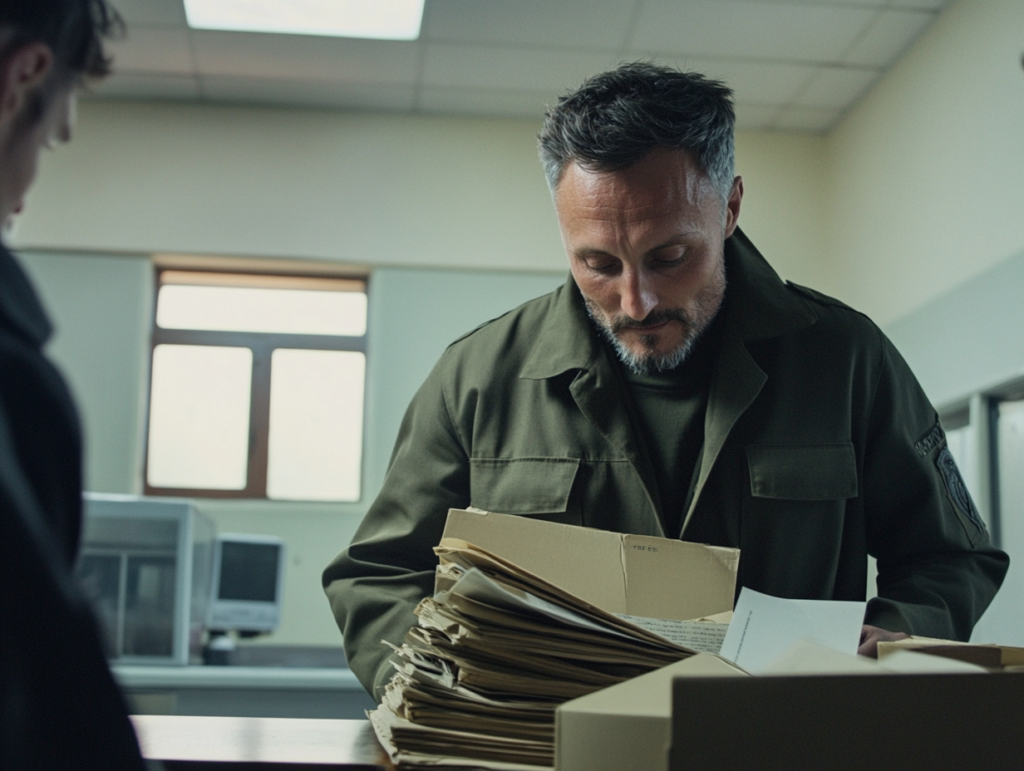
Rowan knew he couldn’t keep this to himself. He gathered the folder, the medallion, and the key, then drove straight to the police station. This time, he refused to downplay anything. He told them about the vault, the attack, Alden’s greed, and the documents bearing his father’s name.
Officers listened carefully, faces tightening as they examined the pages. They dispatched units to the warehouse. Hours later, they reported finding Alden still trapped but alive, along with the vault and remaining files. Alden was taken into custody, shouting that Rowan had misunderstood, that he was lying.
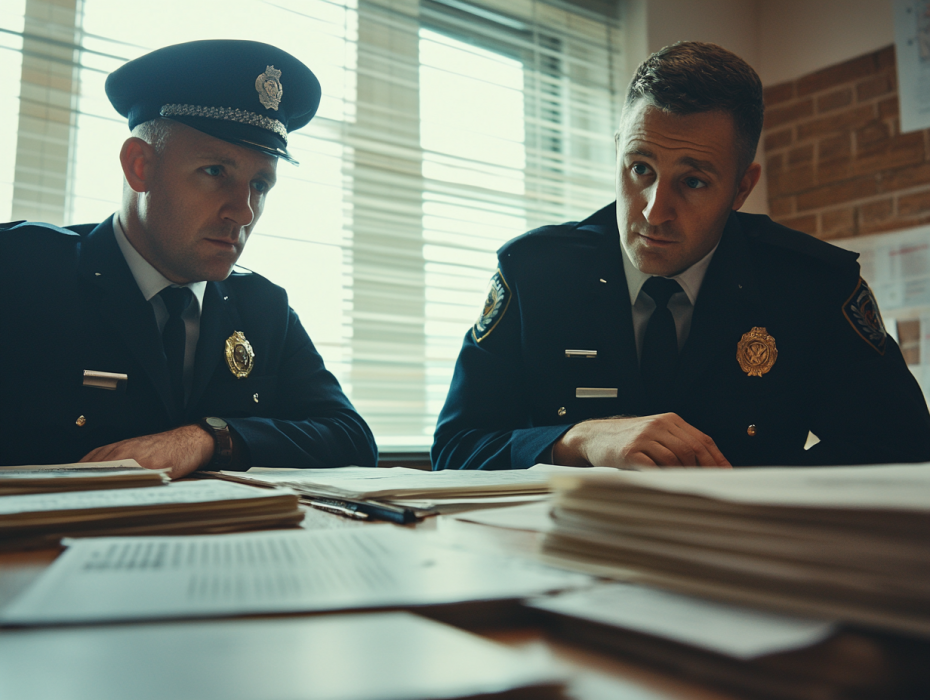
Investigators secured the chest and transported it to a controlled facility. Document specialists began cataloguing what Rowan’s father had preserved. The papers, they said, appeared authentic and damning—layers of fraud, bribes, and deliberate endangerment of ships. Rowan watched through the glass as his father’s handwriting moved from mystery to proof.
They explained that his father must have copied or collected records quietly, planning to hand them over. Instead, he had disappeared at sea, likely after someone realized he knew too much. He hid the key and medallion in the clam, tethered to a particular spot near the fishing zone. The anchoring chain must’ve worn off after so many years.
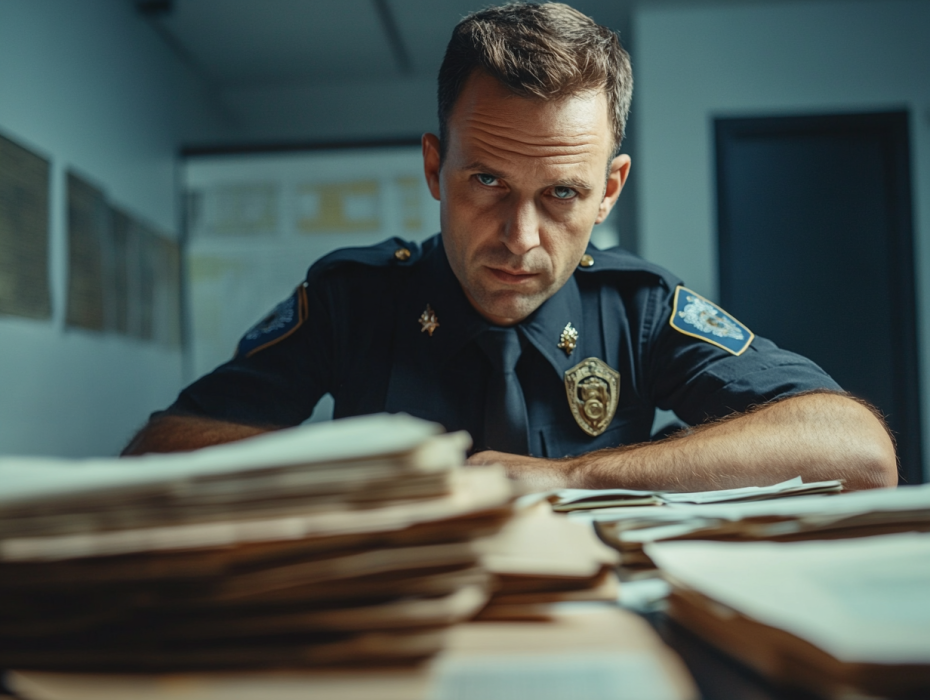
It explained why Rowan had caught the clam in his net. Rowan left the station exhausted, mind humming. For years, he had imagined his father as a victim of bad luck, swallowed by a storm. Now he saw a different man—a whistleblower, trying to protect people he would never meet. The sea had guarded his work until Rowan was ready.
The lead investigator called the next afternoon. They wanted Rowan present when they reviewed the full contents of the vault for an official report. “You were the one who brought this to light,” she said. “And a lot of what’s in there appears to exist because of your father.”
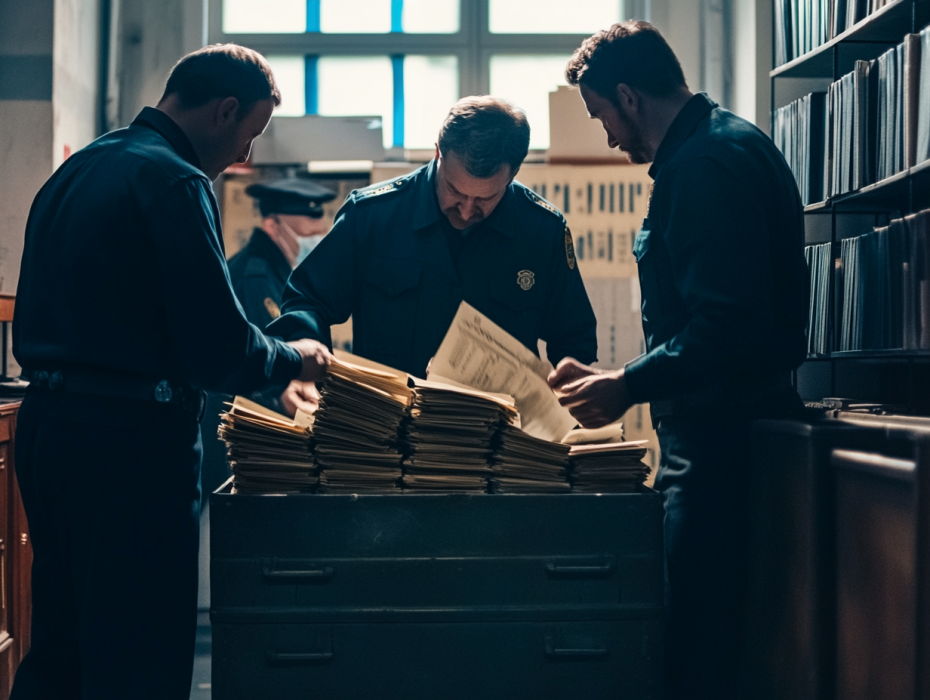
In a quiet records room, the chest sat open on a central table. Archivists and investigators clustered around, gloved hands carefully sorting papers. Rowan stood nearby, feeling out of place among their calm efficiency. Someone passed him a stack stamped with both Harrington letterhead and his father’s cramped annotations.
One document traced a pattern of deliberate overloading and falsified maintenance reports. Next to several lines, his father had written, “Crew raised concerns,” and “Captain overruled under pressure from owners.” Another page listed names—sailors, dockworkers, clerks—underlined as potential witnesses. Many had notes beside them: “Lost at sea,” “resigned abruptly.”
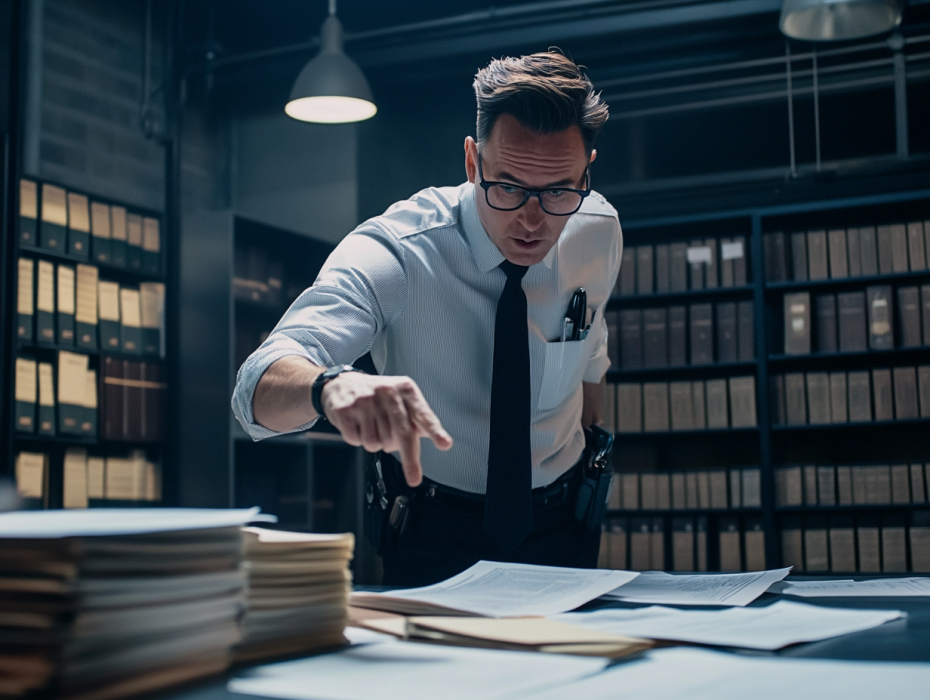
An investigator pointed to a separate bundle. “These appear to be copies of internal Harrington correspondence,” she said. Letters referenced “containing liability,” “neutralizing exposure,” and “ensuring no second archive.” At the bottom of one page, in different ink, Rowan’s father had written, “They know there is another cache. I’m running out of time.”
Another folder held a drafted report addressed to maritime regulators, unsigned. In the margin, his father had scribbled, “Need captain’s approval before sending.” Paper-clipped to it was a short note clearly from the Trident’s captain: “If something happens to me, make sure someone sees this. Hide copies where they can’t look.”

The lead investigator turned to Rowan. “Your father didn’t just stumble into this,” she said gently. “He helped build the case that proves Harrington Maritime knowingly endangered lives for profit. Without these duplicates, most of this might have stayed a rumor, especially if the originals were destroyed after the wreck.”
Rowan looked down at the pages, vision blurring. His father hadn’t abandoned him or sailed away uncaring; he had been fighting something enormous and dangerous. The items in the “clam” were his last insurance policy—a message in a bottle tossed into the only place he trusted to keep it.

“We’ll move forward with formal charges against surviving Harrington executives and associates,” the investigator continued. “There will also be grounds for reopening old cases and compensating affected families.” She paused. “If you’re willing, we’d like to acknowledge both you and your father as central to recovering this evidence.”
Rowan swallowed hard, nodding. He didn’t care about recognition as much as about the story finally being told correctly. For years, whispers had reduced his father’s death to bad luck or incompetence. Now, records and signatures would show he died trying to bring the truth to light.
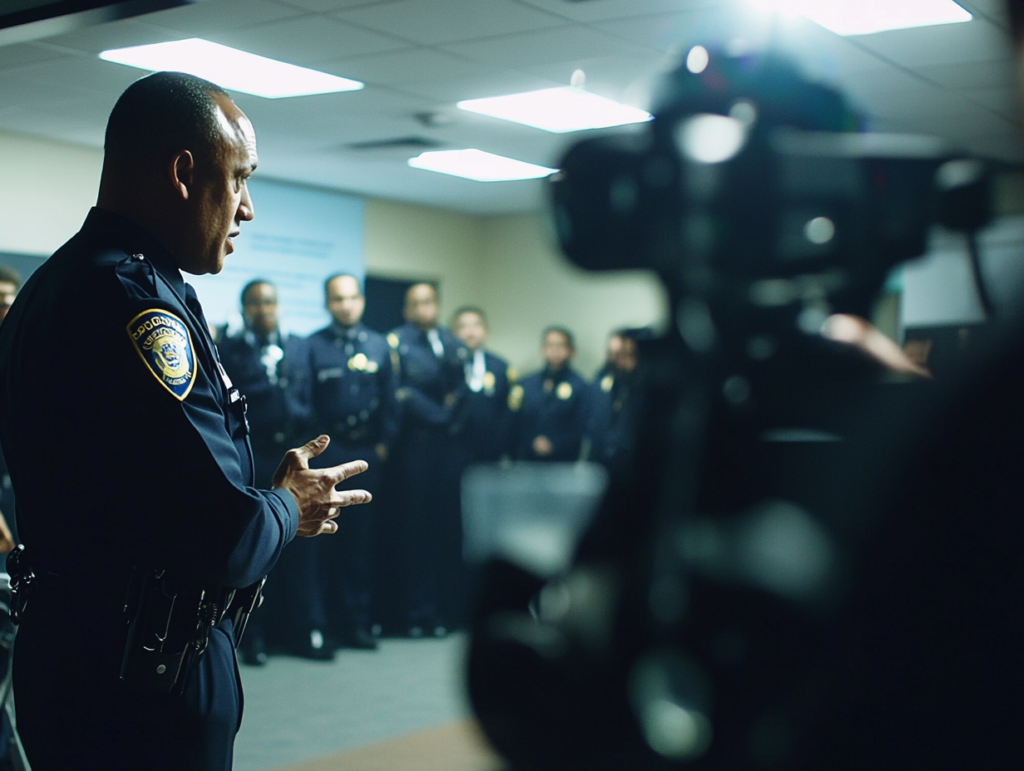
Weeks later, at a press briefing, officials outlined the scandal. Names were read, charges announced, and restitution funds discussed. They spoke of a long-dead deckhand who had quietly preserved records others tried to erase, and of his son who refused to be frightened away when the sea returned the key.
Afterward, Rowan walked to the harbor and stood before his father’s memorial plaque. The brass still gleamed beneath thin salt streaks. He rested his palm against it, feeling less like he was talking to a ghost and more like he was answering a message finally delivered after many years.

Back on his trawler, Rowan set the old compass beside the wheel and looked out over the water. Sunlight broke across the waves. His grandfather’s words settled differently now. The sea did keep its secrets, but sometimes, it also carried them back to the one person who needed them most.
